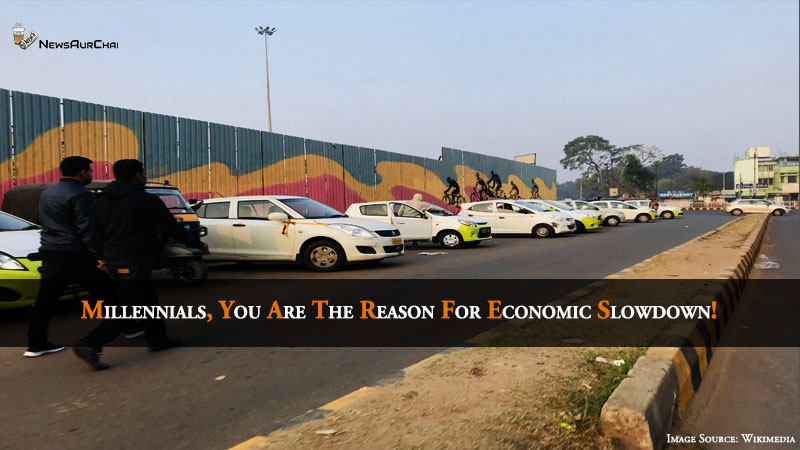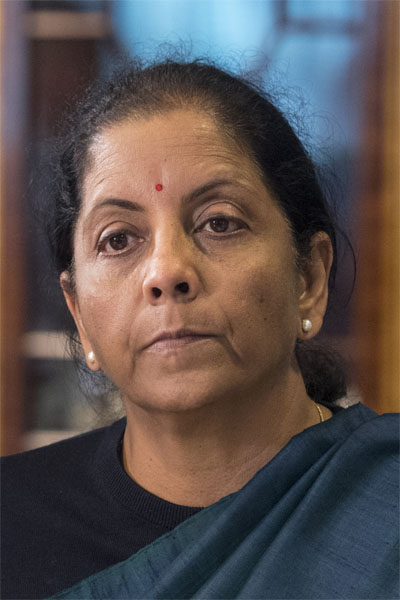
I asked one of my friends after his promotion, “why don’t you fulfil your dream of buying a car when you actually can?” He replied, “why to buy a car when I can get a car, along with a driver with just one click, at my doorsteps with no maintenance cost”. Is this the story of every Indian nowadays? Let’s figure this out.
Ola and Uber cab services have taken over the use of one’s own vehicle and turned out to be a boon for the people by resolving issues related to parking, fuel expense and other security issues associated with one’s own vehicle.
But this happy story took a turn ( as we know that one man’s meat is another man’s poison ) when these cab services started affecting the automobile sector. Recently, our Union Finance Minister, Nirmala Sitharaman claimed that Millennials preference for Ola and Uber is adding to auto sector crises. However, she didn’t solely blame the “millennials mindset”, but she mentioned that BS-VI is also responsible for the same.

What is this BS-VI (Bharat Stage- VI)?
It is a strict norm on the emission of air pollutants from vehicles set by the standard institute of government. It checks the pollutants emitted by vehicles that use combustion engines. Last year, the Supreme Court ruled BS-VI emission standards will come into force, and BS-IV vehicles would not be sold from April 1st, 2020. The automobile industry is worried about this as the strict norms would lead to a rise in the cost of vehicles, especially the diesel ones.
But Are Millennials to be blamed?
Many people are not ready to accept the claim by FM, Nirmala Sitharaman that Millennials are responsible for the current state of the automobile industry. People are not prepared to take the blame on them, as they criticised her by giving a counter statement that Ola, Uber is restricted to metropolitan cities, so why the sale of cars is affected in rural areas?
Millennials also understand that there are various other factors responsible for drowning automobile industry. Such as GST levied on cars is a whopping 28%, the unemployment rate in India during April-June, which rose to its highest level in at least 45 years (6.1%). The overall decline in sales is not only in the auto industry but in other areas too.
The Drowning Automobile Industry
Whatever be the reason, this sector has faced 15,000 job losses in the last quarter. About 300 dealerships have closed down over the previous 18 months. The crises in non-banking financial companies have also led to a steep fall in passenger car sales.
Even carmaker like Maruti Suzuki had shut down its passenger vehicle manufacturing operations of Gurugram and Manesar plants for two days this month. Domestic passenger vehicle sales skidded for the 10th consecutive month, falling from 2,87,198 units in August last year to 1,96,524 units last month and registering a 31.57 per cent decline.
The Solution
The automobile sector faced the worst sales performance in August as it declined by 23.5%, which is the worst in the past two decades, there is a need for a solution to this problem. Finance Minister has given an assurance on the decision regarding GST rate cut for vehicles. It will be taken soon by the GST Council meeting on September 20th.
Along with this, she also announced a host of measures to drive lagging sales in automobile, including a scrappage policy, increase in depreciation on new vehicles for commercial fleet service providers, making loans readily available, and more.
She also assured that BS-IV vehicles registered before March 31st, 2020 would be allowed to run for their entire period of registration. She said government departments had been allowed to buy new vehicles. Moreover, the automobiles purchased till March 31st next year can avail the benefit of additional depreciation of 15% with a total depreciation up to 30%.
In conclusion, this situation of the crisis has to be brought under control to save the automobile industry rather than playing the blame game. Anyone would indeed prefer to pay per ride, which is cheaper than paying EMI at regular intervals, paying traffic rules related to fines, taxes etc. But is it right to put the full blame on Millennials?





